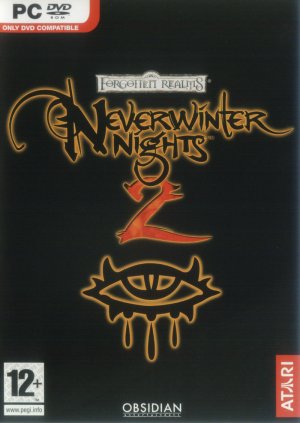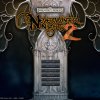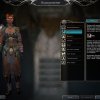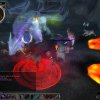The tiny village West Harbor, located not far from the thriving city of Neverwinter in the Sword Coast region, served once as a battlefield between an evil being known as the King of Shadows and the defenders of Neverwinter. The protagonist’s mother was killed during that battle; the elven ranger Daeghun took care of the orphan, raising him (or her) as his own child.
Their peaceful existence comes to an unexpected end when a group of githyanki attack the village just after its traditional festival. It appears that the attack was somehow connected with a mysterious silver shard that was left in a nearby cave shortly after the battle against the King of Shadows. The protagonist then leaves for Neverwinter, searching for Duncan, Daeghun’s half-brother, who might have more answers.
Neverwinter Nights II is a follow-up to Neverwinter Nights. The two games share a common setting; where Neverwinter Nights uses the 3E ruleset released in 2000, Neverwinter Nights II utilizes the D&D 3.5 edition rules released in June 2003. As its predecessor, the game comes with a multiplayer feature and a tool set that allows players to create their own campaigns. However, the gameplay style differs from that of the predecessor by focusing on party-based combat, character management, and dialogue.
In the beginning of the game the player creates the main character, choosing his or her appearance, race (including planetouched, half-orc, and sub-races such as drow or moon elf), class (out of twelve available), and feats. The 3.5 edition of the AD&D rule set introduces prestige classes, into which regular classes may evolve, such as for example warpriest as a prestige class for clerics.
During the course of the game, various characters with their own motivations will join the protagonist. An active party may include up to four characters. The combat system is similar to that of Baldur’s Gate: battles evolve in real time, and the player is able to pause at any moment to issue specific orders to characters. Automatic behavior routines for each character are available as well. Companions react to the player’s choices during quests, and develop relationships with the protagonist depending on their ethical and personal preferences.
The player character eventually acquires a stronghold that can be used as a base of operations. The player can repair the stronghold, improve its defenses, and use it to repel sieges and generate income. It is possible to choose specific ways of using resources to upgrade the keep, recruit merchants, and command guards.




